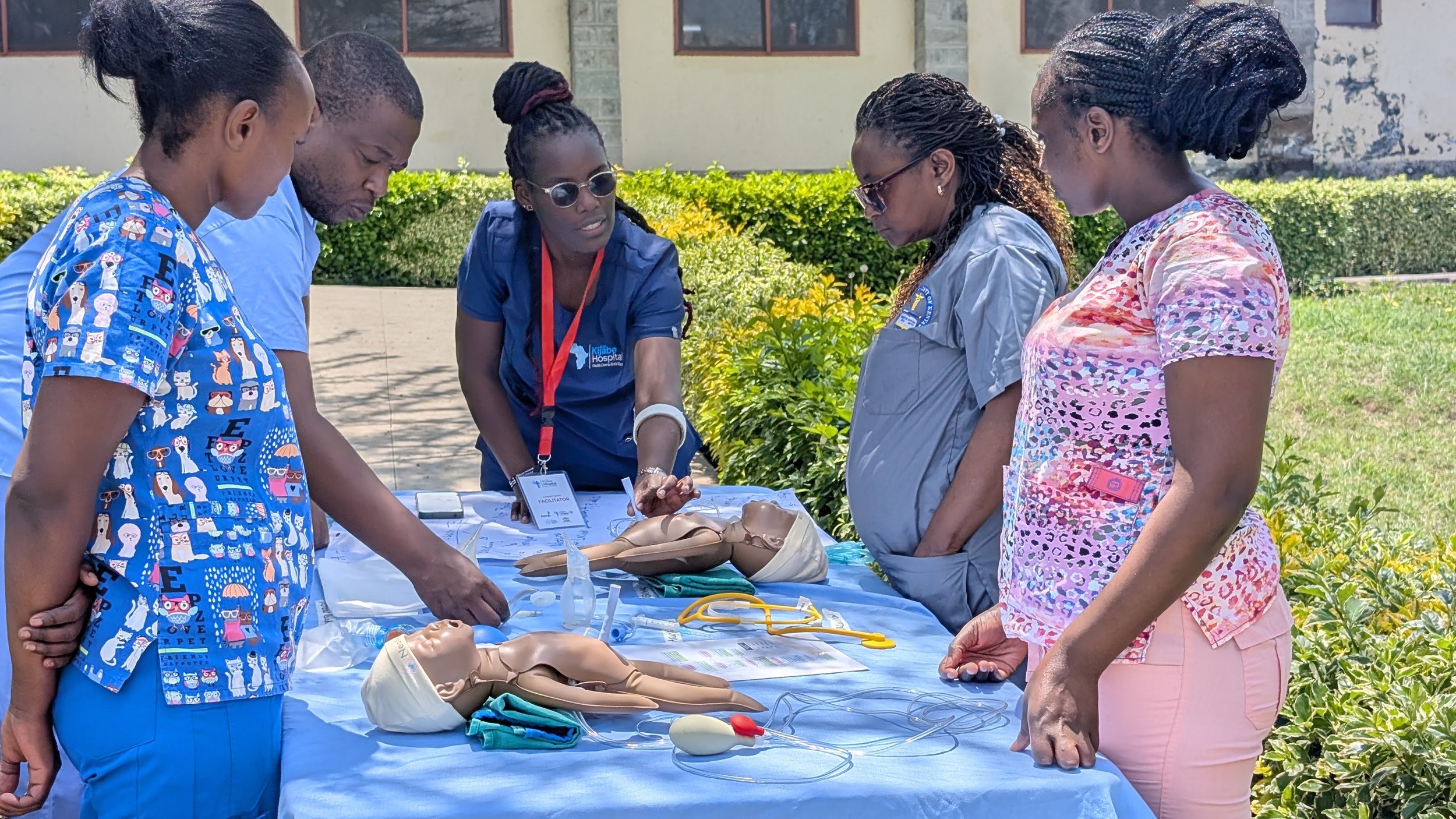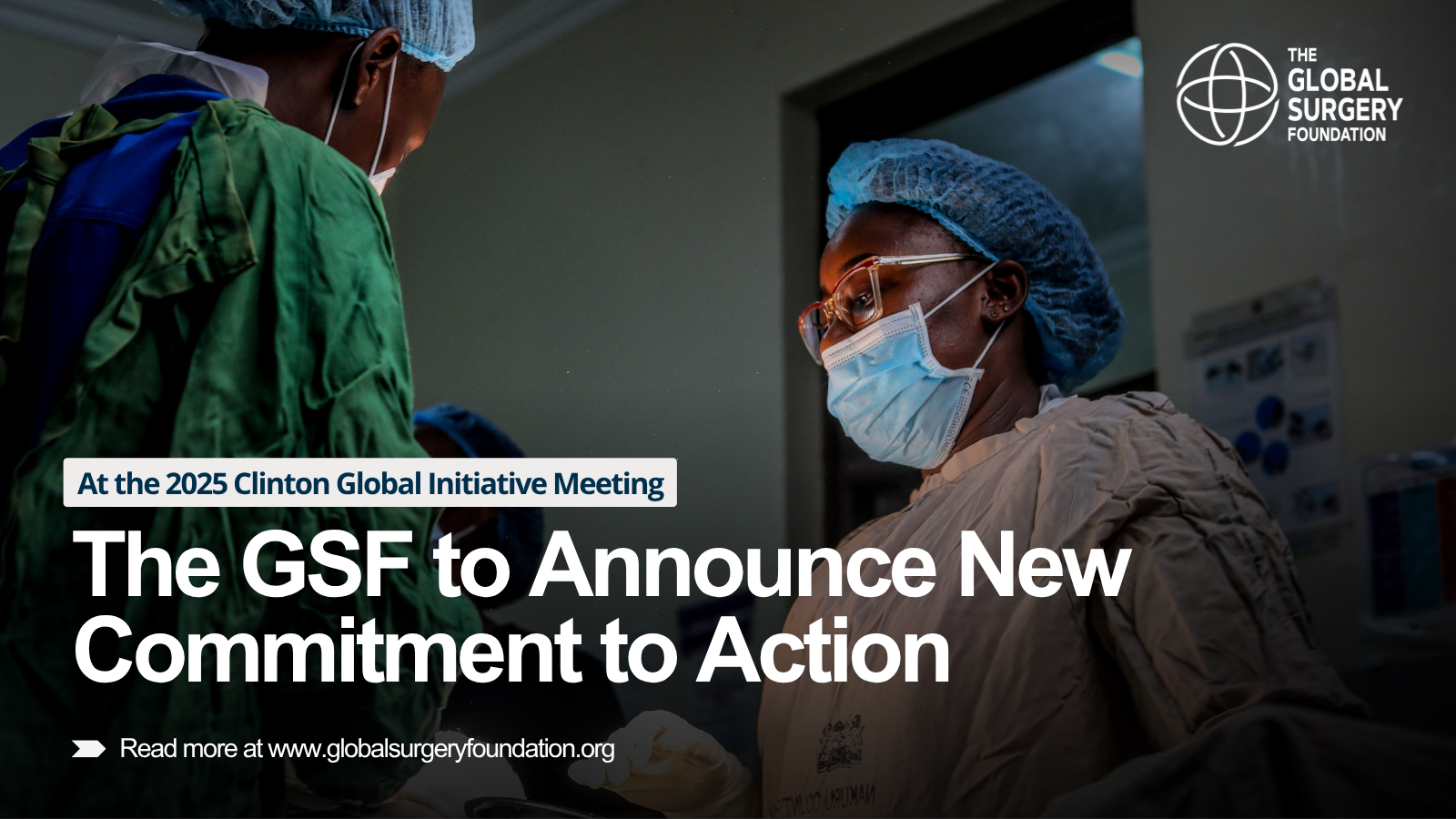
OSS Kenya project
Saving lives of
mothers and newborns in Nakuru County
The SURGfund-supported project “Obstetric Safe Surgery in Nakuru County” aims to improve maternal and perinatal outcomes through safe, timely, appropriate, and respectful caesarean section (CS) care for over 25,000 women giving birth each year across five facilities in Nakuru County, Kenya.
Women in low- and middle-income countries are up to 100x more likely to die following CS compared to women in high-income countries.
Nearly 50% of facility-based maternal deaths are associated with CS.
Surgical site infection occurs at a rate 5x higher in Sub-Saharan Africa than in high-income countries.
Our mission
In the countries in which we work, nearly 50% of facility-based maternal deaths are associated with CS.
In Kenya specifically, 37% of all maternal deaths are associated with CS.
We improve access to Safe CS in Nakuru County, Kenya along the entire perioperative continuum of care, including postpartum follow-up. Our model builds surgical team capacity, aiming to scale-up impact and inform policymaking to improve outcomes on a national level.
OSS Nakuru will ensure an equitable and strengthened surgical ecosystem to deliver quality CS care for every woman, everywhere, every time.
Dr. Daisy Ruto
Project Director | OSS Nakuru Project, Kenya
Our approach
As part of SURGfund’s unique model, we take a comprehensive approach to building long-term impact and ensuring sustainability.
Build Local Partnerships
Jhpiego is the lead implementer of this project with the support and coordination of GSF, in partnership with AIC Kijabe Hospital, and in collaboration with the Ministry of Health in Kenya. This consortium approach ensures local ownership, relevance to the community, and long-term sustainability.
Strengthen Care Networks and Referral System
Kenya has a national referral strategy. However, most counties have not adapted it to their context. This leaves most counties with no clear referral strategies from the community to the facility level. We integrate surgical care into the primary healthcare system and improve access to follow-up care and referrals at every stage.
Develop Workforce Capacity
Nakuru County has yet to adapt the WHO recommendations for Safe CS, including the Surgical Safety Checklist and Infection Prevention bundles, to its local context. We translate global recommendations into the local context and practical actions by using a hands-on, interdisciplinary teams-based approach to build capacity of surgical teams. This includes training both technical skills and non-technical skills to create a culture of patient safety throughout the entire care continuum.
Learn and Improve with Data
We use practical innovations to improve the quality of data for continuous learning, adapting, generating evidence, and improving. We also use shared learning platforms to disseminate the findings and to help inform costed surgical implementation plans on a county level.
“Your foundation's investment in our healthcare workforce extends far beyond training. It represents a beacon of hope for the approximately 2.1 million residents of Nakuru County.”
Dr. Daniel Wainana
County Director of Medical Services, Nakuru County
Expected impact
Through this project, we are aiming to dramatically decrease maternal mortality for over 25,000 women each year in Nakuru County.
50%
Reduction of CS-related complications
30%
Reduction in maternal mortality related to CS
80%
Post-discharge CS clients tracked for follow-up
Safe, timely, and quality caesarean section and anaesthesia care is not a privilege but a fundamental right for our women.
Mary Muthengi
Technical Officer | OSS Nakuru Project, Kenya
About the project
Kenya’s maternal mortality ratio of 379 per 100,000 live births has stagnated over the past two decades and is far behind SDG targets. Similarly, the neonatal mortality rate of 18 per 1,000 live births has not decreased in the past decade. The country suffers from one of the highest stillbirth rates globally at 19 per 1,000 total births. Timely access to safe CS can avert 100,000 maternal deaths every year (over a third of global maternal death) and reduce perinatal mortality by 30-70%.
In Kenya, nearly 50% of facility-based maternal deaths are associated with CS, and a lack of quality, standardised clinical care has been identified in 90% of maternal deaths.
Yet, access to CS alone is not enough – it needs to be safe. Women giving birth in LMICs are 100 times more likely to die following CS than those in high-income countries. The most common deaths are due to haemorrhage or infection. CS maternal mortality risks have not improved in LMICs over the last 30 years. In Kenya, nearly half of facility-based maternal deaths are associated with CS, and a lack of quality, standardised clinical care has been identified in 90% of maternal deaths. In Nakuru County, where our project is located, the rate of CS is 22.9%, ranging from 21.5% to 34% across the project facilities.
“In this environment, saving the life of a mother is equivalent to saving the heart of a community.”
- Mary Mungai, AIC Kijabe
Launched in March 2025, this three-year SURGfund supported project combines interventions to adapt and implement global guidelines and best practices, improve facility readiness, deploy training and mentorship, and strengthen data quality and data systems alongside the Ministry of Health. The present project builds on a model which has been successfully tested in Makueni County to scale-up impact in five facilities in Nakuru County in a hub-and-spoke model.
The surgical team at Nakuru Provincial Hospital
The training and mentoring element utilises a hub-and-spoke model across five facilities. Nakuru Provincial Hospital serves as the hub. The four spokes are the Naivasha District Hospital, Bahati District Hospital, Molo Subcounty Hospital, and Gilgil Subcounty Hospital. Following an initial three-day training for interdisciplinary surgical teams from all five facilities, we implement continued training and mentorship over the project duration. A newly established network of mentors accompanies the teams and trains the surgical team members, including obstetricians, surgeons, anaesthesia providers, scrub technicians, nurses, and midwives. AIC Kijabe Hospital supports the project with targeted training on anaesthesia care.
Through these project activities, we improve the safety and quality of pregnancy care for more than 25,000 women who give birth each year across the five facilities.
This project is funded through SURGfund, the world’s first and only catalytic fund for surgical care systems.
News and updates
Latest updates from our women’s health programme
Our project partners
We work with local and international partners to make this locally led project a success.
Our project team
Our team is comprised of local experts in Nakuru and our international team.
Dr. Daisy Ruto
Project Director, OSS Nakuru Project, Kenya
Dr. John Varallo
Team Lead, Women’s Health, GSF
Dr. Mélanie Samson
Senior Technical Officer, Women’s Health, GSF
Samuel Kamau
MERL Officer, OSS Nakuru Project, Kenya
Faith Chikati
AIC Kijabe
Gregory Sund
AIC Kijabe
Mary Mungai
AIC Kijabe
Mary Muthengi
Technical Officer, OSS Nakuru Project, Kenya
Christine Muia
Programme Manager, OSS Nakuru Project, Kenya
“Your team's cultural sensitivity, professional excellence, and genuine care for our healthcare workers have created lasting bonds that transcend geographical boundaries.”
Dr. Daniel Wainana
County Director of Medical Services, Nakuru County
With this SURGfund project, we will improve quality of care for
25,000
women yearly who give birth in Nakuru County,
and aim to expand to other counties soon.
Help us scale to more counties!
This project is made possible by SURGfund, the world’s first catalytic fund for surgical care.
Partner with us today to accelerate access to surgical care for all women who need it.
Contact: m.samson@globalsurgeryfoundation.org
Sign up for our mailing list below to receive project updates.




































